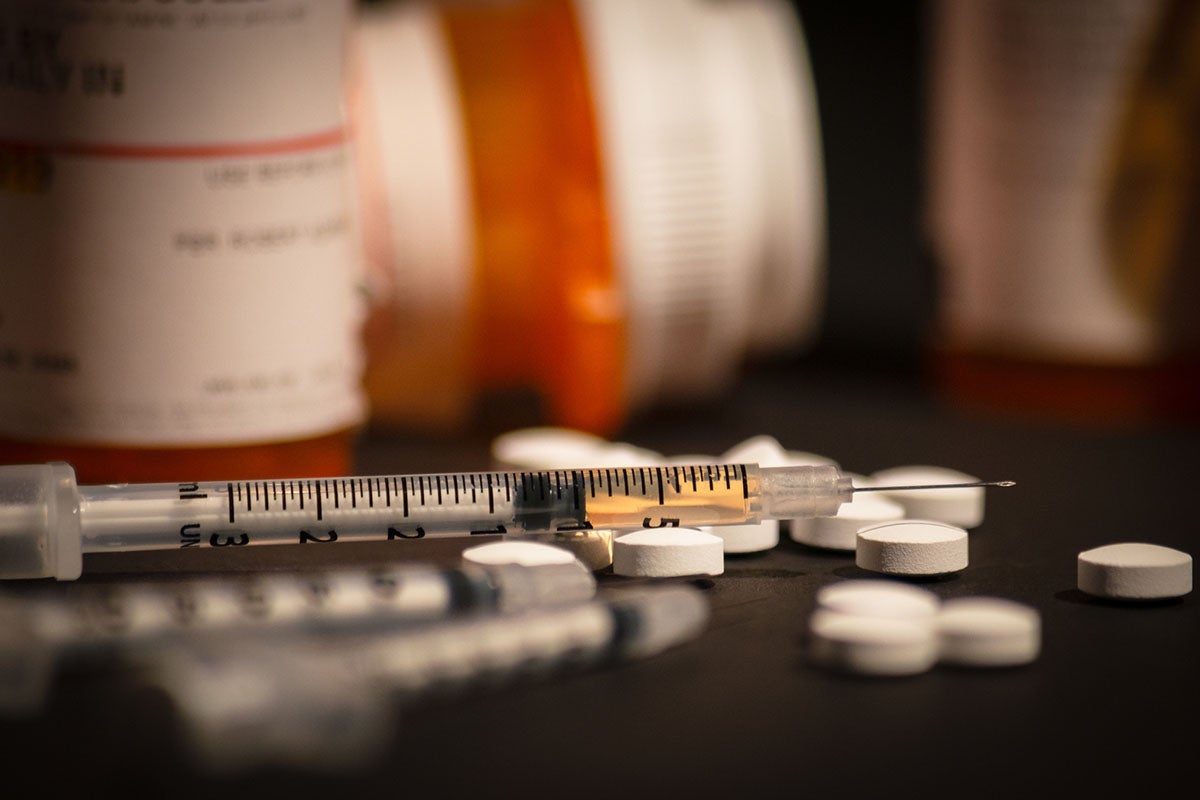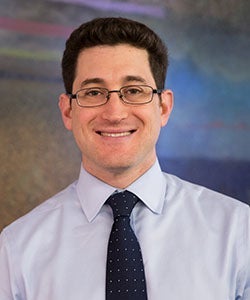Preventing opioid deaths requires reducing stigma, increasing treatments

October 24, 2024 – Throughout the fall, Harvard Chan faculty will share evidence-based recommendations on urgent public health issues facing the next U.S. administration. Michael Barnett, associate professor of health policy and management, offered his thoughts on combatting the opioid epidemic by destigmatizing addiction and making treatment pathways more accessible.
Q: Why are opioid deaths a pressing public health issue?
A: The loss of human life is enormous. We’ve had hundreds of thousands of people die over a few decades. There might be a little bit of a bright spot—the increase in overdose deaths might be decelerating a bit, but it’s bad.
Opioids are also now disproportionately affecting people in black urban areas. The largest source of overdoses is from illicitly manufactured fentanyl—these overdoses happen because of uncertainty in the supply. The drug users do not know what they are injecting or misunderstand what they’re injecting.
The biggest reason why opioid deaths are a pressing public health issue is that these deaths are preventable, a reality that policy experts in addiction medicine know well.
Q: What are the biggest challenges facing the next administration around opioid deaths?

A: Number one is expanding our health system’s capacity for mental health and addiction treatment and enhancing access to care. We must also remove old regulations and make it easier to provide treatment—and there’s currently a bipartisan bill in Congress that aims to accomplish this task.
The biggest issue is there isn’t enough government investment. We need to raise awareness and reduce widely held stigma against treating people with addiction and seeking addiction treatment. One of the biggest issues is that addiction is still widely seen as evidence of weakness or poor character. And that stigma-based approach to the treatment of addiction has not gotten us very far.
Q: What are your top two or three recommendations for policies that might address opioid deaths?
A: Along with investing much more heavily in addiction treatment, I recommend enforcing the Mental Health Parity and Addiction Equity Act and working with Medicare and Medicaid programs to improve reimbursement for mental health and addiction treatments to create more incentive for operators to move into the area.
We also need a broader public health awareness program to reduce stigma against people with addiction and against the different pathways for treatment, such as medication treatment like methadone. I’d like to see a large campaign similar to what the Surgeon General is doing around the health risks related to loneliness and isolation—but this one focused on the idea of normalizing at least some concepts of harm reduction that are beneficial for people with addiction. For example, such a campaign could clarify that medication treatments do not create new addictions, but rather help people manage addiction so they can recover.
It’s also important that we expand access to addiction treatment to people in correctional facilities and provide a transition to continue that treatment after discharge from incarceration.
Q: What’s the evidence supporting these recommendations?
A: It’s hard to get evidence on what would happen if we liberalized treatment methods such as methadone—but we do know methadone and buprenorphine clearly save lives and too few people have access to them.
In terms of mental health parity, there is evidence that mental health reimbursements and addiction coverage still lags behind coverage for other conditions. And there is a lot of research that shows deep stigma exists toward addiction and the health system itself carries that stigma.
Research also shows that for opioid use disorder, abstinence-only therapy is ineffective and if we want people to live, we should focus on other forms of therapy. It’s not that abstinence-only therapy can’t happen, but it’s the default position toward addiction in the health care system—it’s as if that approach is the only way to achieve remission, which is what kills people.
Q: What do you hope could be accomplished in this field in the next four years?
A: I hope the government launches a stigma reduction awareness campaign and empowers the Department of Justice and the Federal Trade Commission to crack down on insurers who don’t comply with the Mental Health Parity and Addiction Equity Act. Addiction treatment within the prison system is a complex issue at the regional and local level but I think more federal buy-in into the importance of making this happen would go a long way.
I’d also like to see a multi-agency task force on opioid addiction that includes the Drug Enforcement Administration, the Department of Justice, and national coordination with the White House because a coordinated effort could likely make a great deal more progress.